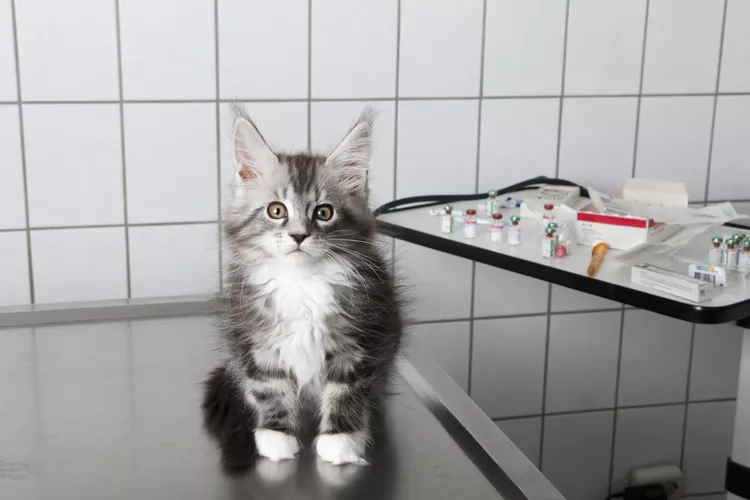Cystitis in Cats

Cystitis is not only a painful condition, it can also be dangerous. Cats that struggle to urinate or have blood in their urine need immediate veterinary attention. An acute case of cystitis will likely require antibiotics, and long-term chronic cases can often be managed with a special diet.
What Is Cystitis?
Cystitis refers to inflammation of the urinary tract. It is also known as Feline Idiopathic or Interstitial Cystitis (FIC), Pandora Syndrome, Feline Urologic Syndrome (FUS), Feline Lower Urinary Tract Disease (FLUTD), or Feline Idiopathic Lower Urinary Tract Disease (iFLUTD). This problem affects the bladder and urethra of a cat and makes it difficult, if not sometimes impossible, to urinate due to the inflammation and discomfort associated with it.
Symptoms of Cystitis in Cats
Cats with cystitis can exhibit a variety of symptoms that can be overlooked as "annoying" cat behavior. This is why it is extremely important to know specific cystitis signs to watch for in your cat.
The signs of cystitis involve urination, so any abnormal litter box behavior may be a sign of this issue. An increase in urinary frequency is an early sign of cystitis and can be determined by seeing more clumps in the litter box or wetter non-clumping litter.
As cystitis worsens, your cat may cry when it urinates due to pain and strain while squatting to urinate. Small squirts of urine may come out instead of a steady stream until the cat is physically unable to urinate. Eventually, the inflammation prevents the urine from leaving the bladder, and the bladder will become enlarged and firm within the lower abdomen. This is a life-threatening issue requiring immediate veterinary attention.
Other signs of cystitis include blood in the urine, an abnormally foul smell to the urine, cloudy urine indicating the presence of crystals or small stones in the bladder, excessive licking of the urinary tract opening, and urgently trying to urinate outside of the litter box.
What Causes Cystitis in Cats?
Most of the time, the reason why a cat develops cystitis is unknown. This is why it is often referred to as idiopathic, which indicates an unknown cause. Possible contributing factors include:
- Stress or anxiety
- Bacterial infections
- Urine crystals (mineral build-up in the urinary tract)
- Bladder stones
- Low levels of a cartilaginous component in the bladder wall called glycosaminoglycans
How Vets Diagnose Cystitis in Cats
The symptoms of cystitis are often obvious and easily recognized by both owners and vets. To make a definitive diagnosis and determine appropriate treatment, a veterinarian may perform a urinalysis, ultrasound, and a blood panel.
How to Treat Cystitis in Cats
Cystitis is first treated symptomatically to ensure your cat can urinate. If your cat is "blocked" and unable to pee, this is an emergency that will require immediate veterinary attention to "unblock" your cat. This will involve sedation to insert a urinary catheter and, sometimes, a procedure called cystocentesis, which involves withdrawing urine out of the bladder using a needle and syringe.
Your cat may be hospitalized for several days to ensure it can urinate independently before going home. Antibiotics will likely be given, and pain medications may be administered to help keep your cat comfortable.
If your cat has a less severe case of cystitis, anti-inflammatory medication may help your cat urinate by decreasing inflammation, pain, stress, and spasms in the urinary tract.
A special diet, recommended by your veterinarian, can help support your cat's urinary system during recovery and in the long term.
Prognosis for Cats with Cystitis
Cystitis can progress quickly after symptoms develop and become life-threatening within days. Cats that receive prompt treatment usually recover well and can live long, healthy lives on a urinary support diet.
How to Prevent Cystitis in Cats
While the causes of cystitis are still under investigation, it has been established that reducing stress, feeding a urinary support diet, and offering a constant supply of fresh water (like that supplied by water fountains) are tactics that help keep cystitis at bay. In addition, administering oral glycosaminoglycans such as sodium chondroitin sulfate can help keep your cat's bladder healthy.